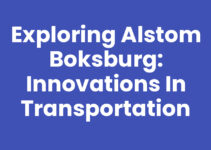Boksburg, a town located east of Johannesburg in South Africa, has a rich history that underscores its name. To truly appreciate the significance of this name, we need to delve into the town’s origins, its development over the years, and its pivotal role within the greater Gauteng region.
Why Was Boksburg Named Boksburg: The Historical Significance
The name ‘Boksburg’ can be traced back to the early foundations of the town in the 1880s. The town was established as part of the Witwatersrand gold rush, which attracted thousands seeking fortune in the gold mines nearby. But what influences and people led to this unique name?
The name itself comes from the nearby ‘Boksburg Spruit,’ a stream in the area, which derives its name from the word ‘bok,’ meaning ‘antelope’ in Afrikaans and Dutch. The stream was significant for early settlers and miners who relied on it for water and other resources.
The foundation of Boksburg occurred in 1887 when the area was declared as a township, with plans laid out to accommodate the booming population. As the town developed, it became a hub for mining, business, and community life. The founders originally intended to cultivate an economically viable township that could serve both the mining interest and local settlers.
Furthermore, the town was named after the then Governor of the Cape Colony, Sir John Gordon Sprigg, who played a crucial role in the administration of the area during its development. Hence, ‘Boksburg’ emerged as a blend of geography and the influences of colonial governance.
The Evolution of Boksburg Through the Years
Following its establishment, Boksburg rapidly transformed from a simple mining town into a vibrant community with significant infrastructure developments. By the early 1900s, it had grown considerably, and its economy expanded with the rise of industries beyond gold mining.
During the late 20th century, Boksburg continued to thrive as a suburban area. It became characterized by shopping malls, residential estates, and various amenities that catered to the growing population. Today, the town is known for its diverse cultural heritage and serves as a commercial hub that attracts both locals and visitors.
Understanding why Boksburg was named Boksburg also involves recognizing its transition into a modern urban center while maintaining its historical roots. The streets, landmarks, and locals often reflect stories from the past, making Boksburg a critical location in South Africa’s cultural tapestry.
Visiting Boksburg: What to Expect
For those interested in exploring Boksburg, there are various attractions and activities to enjoy. The town boasts parks, museums, and historical sites that tell the story of its past. Here are some key places and experiences:
- Boksburg Light Railway: A charming steam railway that offers rides and showcases the engineering marvels of the past.
- The Boksburg Civic Centre: A local hub where you can catch community events and exhibitions that highlight the town’s history.
- Restaurants and Cafes: Sample local cuisine at various eateries, reflecting both traditional and modern South African dishes.
- Parks and Nature Reserves: Participate in outdoor activities, including hiking, birdwatching, and picnicking at local parks.
Each of these attractions offers a glimpse into why Boksburg holds a special place in the hearts of its residents and the larger South African context. Visitors to Boksburg can experience history while appreciating the progress the town has made.
Conclusion: The Legacy of Boksburg’s Name
The question of why Boksburg was named Boksburg leads us to a broader understanding of the town itself. It reflects a historical narrative rich in culture, community, and change—a place where important events in South Africa’s past have unfolded. By appreciating its name, we can also value its legacy and the continuing evolution of Boksburg as it moves forward into the future.
Frequently Asked Questions
What does the name 'Boksburg' mean?
The name 'Boksburg' derives from 'bok,' meaning 'antelope' in Afrikaans, in reference to the nearby stream called Boksburg Spruit.
When was Boksburg established?
Boksburg was established in 1887 during the Witwatersrand gold rush, aimed at serving the mining community.
What are some attractions in Boksburg?
Boksburg offers attractions such as the Boksburg Light Railway, civic centers, parks, and various restaurants showcasing local cuisine.


